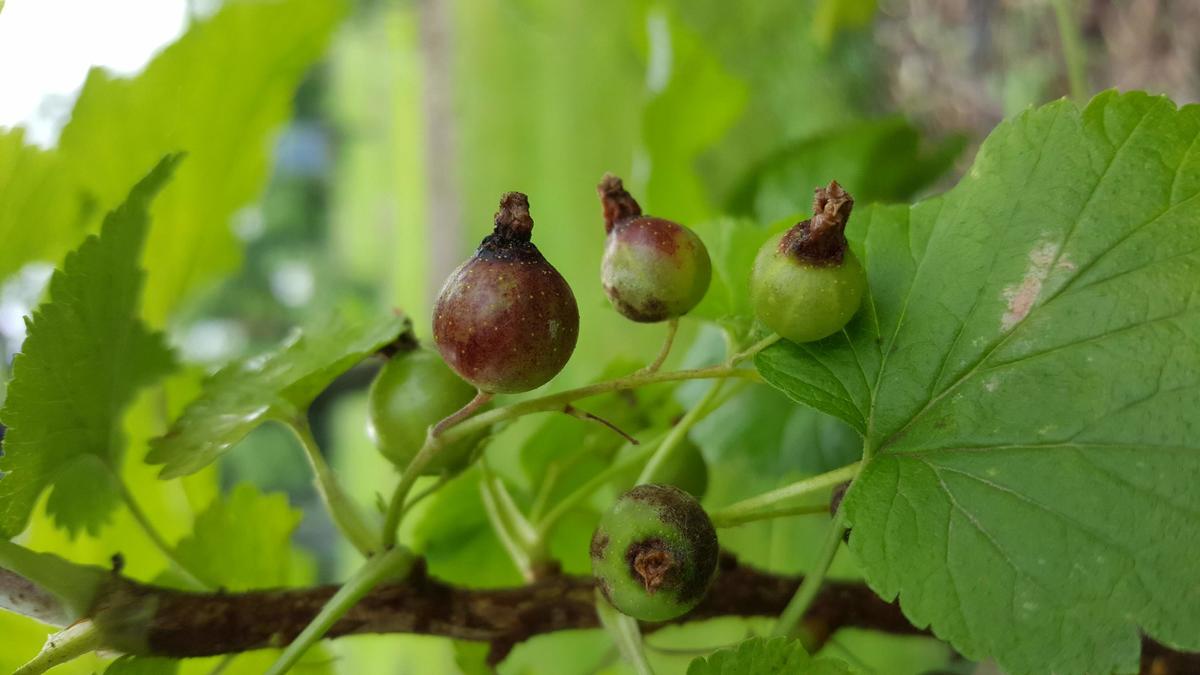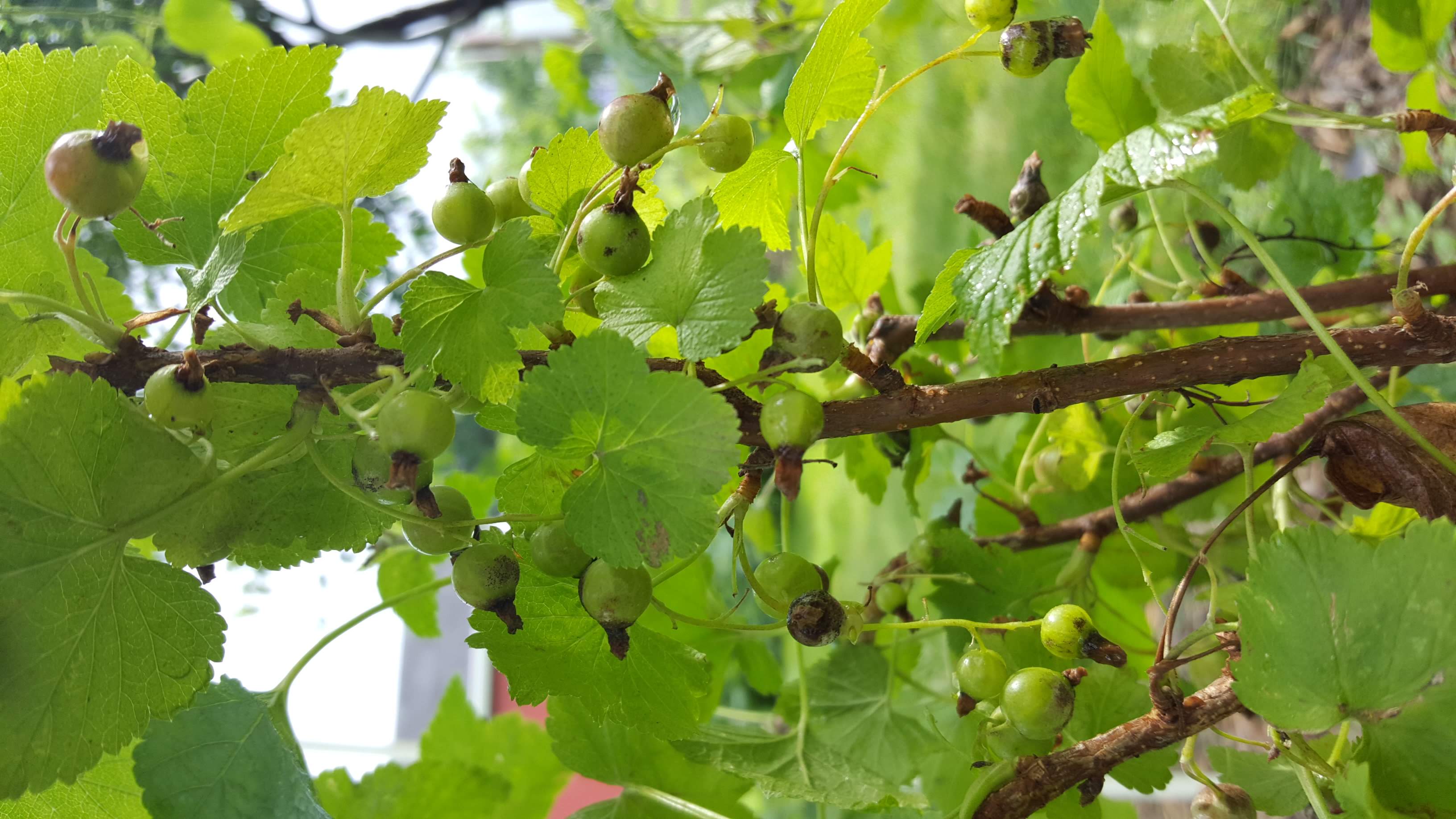Common Name: Consort black currant
Scientific Name:
Family: Grossulariaceae
Genus: Ribes
Species: nigrum ‘Consort’
Hardiness Zone: 3 to 7
Height: 3 to 4 ft
Width: 3 to 4 ft
Description:
A medium-sized shrub grown for its tart black berries in summer, excellent for jam; quite stiff and upright, becoming looser with age; best for a reserved spot in the orchard or fruit garden, can be susceptible to mildew so allow for good air movement. Consort Black Currant will grow to be about 4 feet tall at maturity, with a spread of 3 feet. It tends to fill out right to the ground and therefore doesn’t necessarily require facer plants in front. It grows at a medium rate, and under ideal conditions can be expected to live for approximately 20 years. Grow in average, medium moisture, well-drained soils in full sun. Tolerant of light shade. Prefers rich, moist loams. Adapts to both wet and dry sites. Generally tolerant of urban conditions. Regular pruning and spraying is advisable. The Consort Black Currant is a beautiful shrub that requires little care and yet provides a bountiful harvest. What more could you ask for in a garden shrub.
No serious insect or disease problems. In wet, humid conditions, anthracnose, powdery mildew and fungal leaf spot can be troublesome. Currant aphid, scale, currant bud mite and currant fruit fly are potential insect pests in some areas. Consort Black currants are an alternate host for white pine blister rust, a usually fatal disease for white pines. Fourteen states currently maintain various types of bans on Ribes species plants, the most restrictive being the total ban on all Ribes plants in North Carolina. Notwithstanding state and local legislation, black currants should not be planted in any area where the disease is prevalent. In areas where the disease is not prevalent, it is still best to avoid planting black currents in locations where white pines are growing unless rust-immune cultivars (like ‘Consort’) are used.
References:

